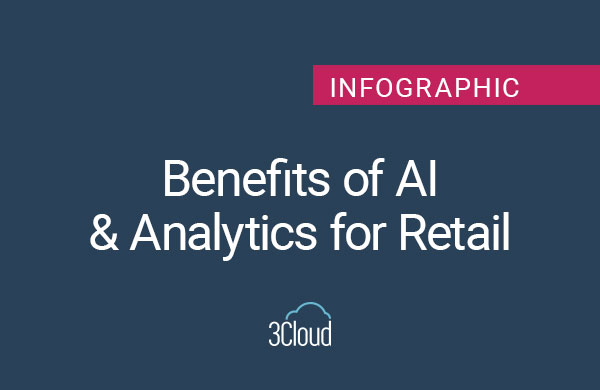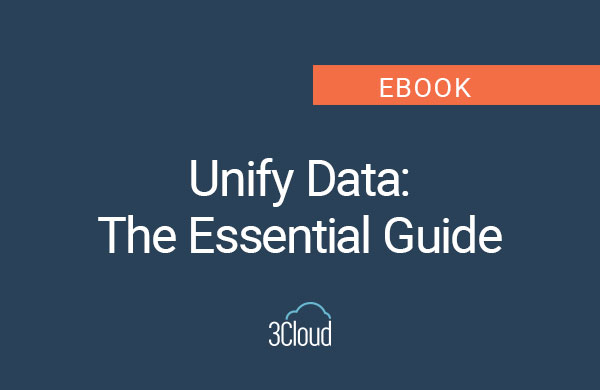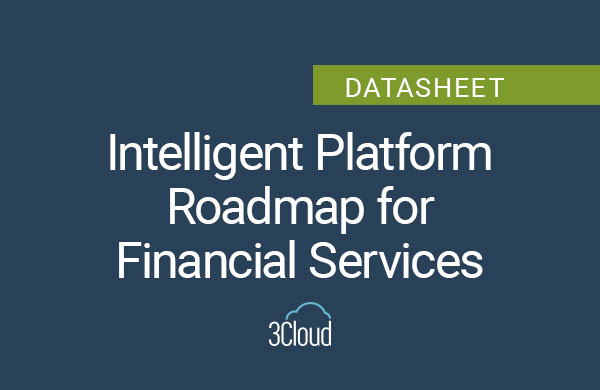Big data and AI work together in Azure to enable advanced analytics and intelligent decision-making. First, Azure provides scalable storage and processing capabilities for big data, allowing organizations to collect and store large volumes of data from various sources. Next, Azure AI services, such as Azure Machine Learning, leverage this big data to build and train AI models. These models can analyze the data, identify patterns, and make predictions or recommendations.
Azure also offers tools like Azure Databricks, which combines big data processing with AI capabilities, enabling data scientists to perform complex data analysis and machine learning tasks in a collaborative environment. Finally, Azure’s integration with other services, such as Azure Cognitive Services, allows developers to incorporate AI capabilities, such as natural language processing or computer vision, into their applications, further enhancing the value of big data.
Benefits Offered with AI and Big Data Implementation:
Implementing AI and Big Data in business operations can significantly enhance efficiency, providing insights derived from complex data analysis that human capabilities alone cannot match. This integration also offers the potential for personalized customer experiences and predictive analytics, leading to improved customer satisfaction and foresight in market trends. Big Data and AI in Azure offer several benefits:
- Organizations can quickly and efficiently process and analyze vast amounts of data using them, leading to valuable insights and informed decisions.
- Azure provides scalable and flexible infrastructure, allowing businesses to store and manage large datasets effectively.
- Azure’s AI capabilities, such as machine learning and natural language processing, empower organizations to automate tasks, improve operational efficiency, and deliver personalized experiences to customers.
- Azure’s integration with other Microsoft services and tools provides a comprehensive ecosystem for end-to-end data processing and AI development.
- Azure’s robust security and compliance features ensure the protection and privacy of data, fostering trust among users and meeting regulatory requirements.
Key Differences Between Big Data and AI Technology:
AI and Big Data are related but distinct concepts. Big Data refers to the vast amount of structured and unstructured data generated by various sources, including social media, sensors, and transactions. It focuses on collecting, storing, and processing data to extract meaningful insights and patterns.
On the other hand, AI involves the development of intelligent systems that can perform tasks that typically require human intelligence, such as understanding natural language, recognizing images, and making decisions. AI utilizes algorithms and models to analyze data, learn from it, and make predictions or take actions based on the learned patterns.
The synergy between AI and Big Data is akin to a strategic partnership driving innovation and efficiency. AI serves as a powerful tool, harnessing the extensive datasets – Big Data – that enterprises accumulate, to refine its algorithms and models. This data, rich in variety and volume, becomes the training ground for AI, enabling it to unearth deep insights and learn with increasing sophistication. In return, AI elevates the utility of Big Data for enterprises by automating complex analyses, revealing hidden patterns, and converting vast data reserves into valuable, actionable intelligence.
Big Data stands as a vast repository of potential, while AI represents the advanced analytical capability to mine this potential. This combination is not just about processing data; it’s about leveraging these resources to forge smarter strategies, make more informed decisions, and gain a competitive edge in the market. Together, AI and Big Data are not just tools but catalysts for transformation and growth in the enterprise sector.
How Do They Work Together?
The intersection of AI and big data analytics has opened up numerous opportunities across various fields. Let’s delve deeper into each of the mentioned areas and explore their connection with big data analytics:
- Machine Learning: Machine learning algorithms thrive on large volumes of data. By analyzing massive datasets, these algorithms can identify patterns, trends, and correlations that might not be apparent to humans. Big data analytics provides the necessary infrastructure and techniques to process and extract insights from such data. Machine learning models learn from this data to make accurate predictions, detect anomalies, automate decision-making, and improve overall system performance.
- Natural Language Processing (NLP): Unstructured textual data, like social media posts, articles, customer reviews, and emails, contains valuable information. NLP techniques enable the extraction of meaningful insights from this data by leveraging big data analytics. Sentiment analysis techniques can analyze a vast number of text documents to determine the sentiment expressed. Text summarization algorithms can generate concise summaries of lengthy documents, aiding in information retrieval. Language translation systems benefit from big data analytics to train models that accurately translate text from one language to another.
- Computer Vision: Visual data, such as images and videos, is abundant in today’s digital world. Big data analytics facilitates the processing and interpretation of vast amounts of visual data through computer vision techniques. Object recognition algorithms can identify and locate specific objects within images or videos. Image classification models can categorize images into various classes, providing valuable metadata for indexing and retrieval purposes. Video analysis algorithms can analyze video content, enabling applications like surveillance, content moderation, and action recognition.
- Deep Learning: Deep learning, a subfield of machine learning, excels in analyzing complex and high-dimensional data. Big data analytics provides the necessary computational power and storage capacity to train deep neural networks on large-scale datasets. Deep learning models have revolutionized several domains, including image recognition, speech recognition, natural language understanding, and autonomous driving. These models can automatically learn intricate representations and hierarchies in data, uncovering hidden patterns and making accurate predictions.
- AI-based Recommendation Systems: Recommendation systems have become a vital part of many online platforms. By analyzing user preferences and behavior patterns from large datasets, recommendation systems can provide personalized suggestions to users. Big data analytics helps in capturing and processing massive amounts of user data, including purchase history, browsing behavior, and social interactions. By applying AI techniques, recommendation systems can accurately predict user preferences, enhance user experience, and drive business growth.
What fields of AI are linked with Big Data Analytics?
Big Data Analytics plays a crucial role in advancing various fields of Artificial Intelligence, providing the extensive datasets necessary for developing and refining AI technologies. In Machine Learning and its subset, Deep Learning, big data is indispensable for training models to make accurate predictions and decisions, improving over time as they process more information. Natural Language Processing (NLP) utilizes big data to understand and manipulate human language, enabling applications like sentiment analysis and chatbots.
Similarly, Predictive Analytics relies on big data to forecast future trends and events, a technique widely applied in industries such as finance, marketing, and healthcare.
Moreover, big data is integral to Data Mining, enhancing the ability to extract valuable insights from large datasets. In the world of Computer Vision, it provides a plethora of visual data necessary for training systems in tasks like object recognition. Robotics and the Internet of Things (IoT) also benefit from big data, using it to train AI models for better environmental interaction and decision-making.
Cognitive Computing uses big data to mimic human thought processes in computers, while Sentiment Analysis applies it to gauge public opinion and market trends through the analysis of extensive text data. Each of these AI fields leverages the depth and diversity of big data to create more sophisticated, accurate, and efficient AI applications.
What’s to Come?
The future of AI and Big Data is set to bring significant changes and advancements across various industries. As the amount and diversity of Big Data expand, AI technologies are expected to become more refined and capable, leading to deeper, more precise insights and predictions. This progression will be particularly impactful in healthcare, potentially ushering in an era of personalized treatments and earlier disease detection.
In the business world, the implications are equally substantial, with data-driven strategies likely reaching new levels of sophistication and effectiveness. The convergence of AI with technologies like the Internet of Things (IoT) promises to enhance automation and smart technology applications, potentially leading to more efficient urban environments and improved lifestyles.
This advancement comes with its own set of challenges, especially concerning data privacy, security, and the ethical use of AI. Addressing these issues will require comprehensive strategies and policies to ensure the growth of these technologies remains responsible and beneficial.
Big Data and AI in Summary
Big data analytics forms a crucial foundation for several AI fields. It enables machine learning, NLP, computer vision, deep learning, and recommendation systems to leverage large datasets and extract valuable insights. The combination of AI and big data analytics empowers organizations to make data-driven decisions, gain a competitive edge, and unlock new possibilities in various industries.
Let our experts at 3Cloud come alongside you and leverage our technical experience to provide guidance on how to apply AI to your big data every step of the way in your analytics journey. We’re committed to making the power of AI known far and wide. We also offer a 1-hour Exploration Workshop, and an 8-hour Envisioning Workshop to help you best acclimate to this technology based on where you are starting from and what you would like to try. Ready to jump right in? Check our OpenAI Jumpstart solution to see if it’s the right fit! Contact us directly today to learn more!




